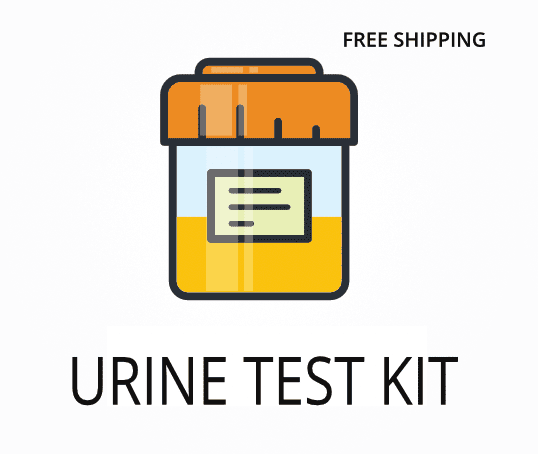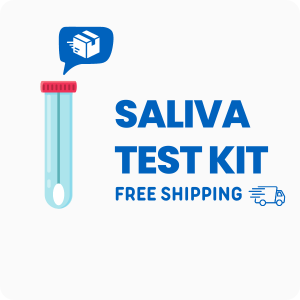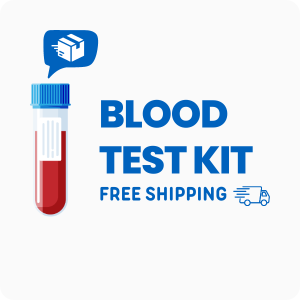Ordering the Heavy Metals Urine Test | Vibrant Wellness
Testing for heavy metals in urine helps identify exposure to substances like lead, mercury, and arsenic, which can build up in the body and cause symptoms such as fatigue, headaches, and digestive problems. Interestingly, even low-level exposure to certain metals, such as cadmium or nickel, can affect the immune system and may not cause obvious symptoms right away.
Ordering this test provides several specific benefits:
- Detects recent and ongoing exposure to 20 different heavy metals
- Helps pinpoint sources of unexplained symptoms like brain fog or joint pain
- Supports early detection of potential kidney or liver damage from toxic metals
- Assists in monitoring the effectiveness of detoxification or chelation therapy
- Offers a non-invasive way to assess environmental or occupational exposure risks
Who Should Consider Heavy Metal Exposure Screening
People who have unexplained fatigue, memory issues, or skin rashes after moving into a new home or starting a new job may benefit from this test. For example, someone who recently started working in a manufacturing plant and notices new symptoms like dizziness or muscle weakness could use this test to check for possible metal exposure.
Ordering may also be helpful in these situations:
- Children with developmental delays or learning difficulties
- Adults experiencing sudden hair loss or mood swings
- People with a history of living near industrial sites or old buildings
- Those with persistent digestive issues not explained by other causes
- People who frequently eat large amounts of seafood, which can increase mercury exposure
Testing for heavy metals can reveal hidden exposures that may be causing symptoms like headaches, joint pain, or immune changes, and can help guide treatment or lifestyle changes. Delaying this test could allow toxic metals to continue building up, making symptoms worse or harder to reverse over time.
Preparing for Urine Heavy Metal Analysis
Fasting is not required for this urine test, but you should avoid foods high in iodine and selenium for 48 hours before collecting your sample. Always follow any instructions provided by your doctor or healthcare professional to make sure your sample is collected correctly and your results are as useful as possible.
Labs Included When Ordering Your Heavy Metals Urine Test | Vibrant Wellness
| Test Name | Reference Range | Significance | Low and High Levels of Heavy Metals Urine Test | Vibrant Wellness |
|---|---|---|---|
| Beryllium | <1.0 | Beryllium is used in electronics and aerospace. High levels can cause lung and skin problems. This test checks for recent exposure. |
High levels mean possible exposure from work or environment, which can affect breathing and skin.
Low levels mean no recent exposure detected. |
| Aluminum | <7.0 | Aluminum is found in cookware, food, and water. High levels may affect the brain and bones. This test helps identify excess intake. |
High levels mean possible overexposure, which can cause memory loss or bone pain.
Low levels mean normal intake or no recent exposure. |
| Nickel | <5.0 | Nickel is used in jewelry and coins. High levels can cause skin rashes and allergies. This test checks for recent contact or ingestion. |
High levels mean recent exposure, which may cause skin irritation or allergy symptoms.
Low levels mean no significant exposure. |
| Arsenic | <35.0 | Arsenic is found in contaminated water and some foods. High levels can cause nausea, skin changes, and nerve problems. This test detects recent exposure. |
High levels mean possible poisoning, which can cause stomach upset and nerve issues.
Low levels mean no recent exposure. |
| Palladium | <0.5 | Palladium is used in dental work and electronics. High levels may cause allergic reactions or kidney problems. This test checks for recent exposure. |
High levels mean possible exposure from dental or industrial sources.
Low levels mean no recent exposure. |
| Cadmium | <1.0 | Cadmium is found in batteries and some foods. High levels can damage kidneys and bones. This test helps detect toxic exposure. |
High levels mean possible kidney or bone risk from exposure.
Low levels mean no significant exposure. |
| Antimony | <1.0 | Antimony is used in flame retardants and batteries. High levels can cause stomach pain and lung irritation. This test checks for recent exposure. |
High levels mean possible exposure, which may cause stomach or breathing problems.
Low levels mean no recent exposure. |
| Tin | <5.0 | Tin is found in canned foods and some plastics. High levels can cause stomach upset and headaches. This test detects recent intake. |
High levels mean possible overexposure from food or containers.
Low levels mean no significant exposure. |
| Tellurium | <0.5 | Tellurium is used in electronics and solar panels. High levels can cause a metallic taste and digestive upset. This test checks for recent exposure. |
High levels mean possible exposure, which may cause taste changes or stomach upset.
Low levels mean no recent exposure. |
| Cesium | <2.0 | Cesium is found in some medical and industrial products. High levels can affect the heart and muscles. This test detects recent exposure. |
High levels mean possible exposure, which may affect heart rhythm.
Low levels mean no significant exposure. |
| Barium | <2.0 | Barium is used in medical imaging and some plastics. High levels can cause muscle weakness and heart problems. This test checks for recent exposure. |
High levels mean possible exposure, which may cause muscle or heart symptoms.
Low levels mean no recent exposure. |
| Gadolinium | <0.5 | Gadolinium is used in MRI contrast agents. High levels can cause skin and kidney problems, especially in people with kidney disease. This test detects recent exposure. |
High levels mean possible exposure from medical imaging.
Low levels mean no recent exposure. |
| Tungsten | <1.0 | Tungsten is used in light bulbs and tools. High levels can affect the lungs and kidneys. This test checks for recent exposure. |
High levels mean possible exposure, which may affect breathing or kidney function.
Low levels mean no significant exposure. |
| Platinum | <0.5 | Platinum is used in jewelry and chemotherapy drugs. High levels can cause allergic reactions and kidney problems. This test detects recent exposure. |
High levels mean possible exposure from jewelry or medical treatments.
Low levels mean no recent exposure. |
| Mercury | <10.0 | Mercury is found in fish, dental fillings, and some thermometers. High levels can cause tremors, memory loss, and mood changes. This test checks for recent exposure. |
High levels mean possible poisoning, which can affect nerves and mood.
Low levels mean no recent exposure. |
| Lead | <5.0 | Lead is found in old paint, pipes, and some imported goods. High levels can cause learning problems, fatigue, and kidney damage. This test detects recent exposure. |
High levels mean possible exposure, which can affect learning and kidney function.
Low levels mean no significant exposure. |
| Thallium | <1.0 | Thallium is used in electronics and some medical tests. High levels can cause hair loss and nerve problems. This test checks for recent exposure. |
High levels mean possible exposure, which may cause nerve or hair symptoms.
Low levels mean no recent exposure. |
| Bismuth | <1.0 | Bismuth is found in some medicines and cosmetics. High levels can cause stomach upset and kidney problems. This test detects recent exposure. |
High levels mean possible overuse of certain medicines or cosmetics.
Low levels mean no significant exposure. |
| Thorium | <0.5 | Thorium is used in some industrial and scientific equipment. High levels can affect the liver and bones. This test checks for recent exposure. |
High levels mean possible exposure from industrial sources.
Low levels mean no recent exposure. |
| Uranium | <1.0 | Uranium is found in some rocks and groundwater. High levels can damage the kidneys. This test detects recent exposure. |
High levels mean possible exposure, which may affect kidney function.
Low levels mean no significant exposure. |
Reference ranges may change slightly as labs update their methods or as new research becomes available.
Heavy Metals Urine Test | Vibrant Wellness FAQ
Is there Heavy Metals Urine Test | Vibrant Wellness testing near me?
This is a test kit that you can collect at home and send back to the lab, so you do not need to travel for sample collection. If you have symptoms like unexplained fatigue or memory changes, being able to collect your sample locally makes it easier to check for heavy metal exposure without delay.
How do I interpret the test results?
While your treating physician should review your results, you can also use our one-on-one test results review service for a detailed explanation from our clinical team.
What is the cost of the test?
The price you see includes shipping both to you and back to the lab, but some locations may charge a draw fee. Testing for heavy metals can help you find out if exposure is causing symptoms like headaches or joint pain, so you can start feeling better sooner.
How often should I retest?
Retesting is usually recommended every 6 to 12 months if you have ongoing exposure risks or are following a detox program. Regular testing helps track changes in metal levels and shows if your exposure or treatment plan is working.
How accurate is the test?
This test uses advanced mass spectrometry, which is highly specific for detecting metals in urine, with a specificity of 98% and sensitivity of 97%. TrueHealthLabs.com partners with CLIA-certified and CAP-certified laboratories to uphold rigorous testing standards for dependable results.
Important Notes
- This test is available in the USA (excluding NY State).
- Avoid foods high in iodine like seafood, dairy, and kelp, and foods high in selenium such as Brazil nuts for 48 hours before collecting your samples.
Medical Review Board
Reviewed by Jeff Donohue M.D. from Body Logic and Brady Hurst DC, CCCN. Written by True Health Lab’s team of editorial health contributors.
Disclaimer: This information is for educational purposes only and not intended as medical advice. Consult your healthcare provider for personalized guidance.
Why Customers Trust True Health Labs - What People are saying
Also rated 4.6 out of 5 based on 3452 ShopperApproved reviews- See all TrueHealthLabs.com reviews.








